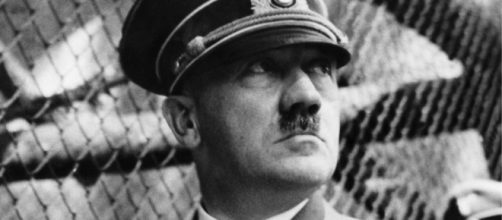As Sean Spicer, President Donald Trump’s spokesman, recovers from his Hitler, Syria, poison gas gaffe, the New York Times asks the question, why didn’t Hitler use Nazi Germany’s store os nerve agents such as sarin and tabun gas. The weapons were certainly available for use, even during the last months of World War Ii in Europe when Hitler would have had every incentive to unleash weapons of mass destruction as a last ditched effort to save his regime.
The standard explanation is that Hitler feared retaliation from the Allies if he were to use Poison Gas.
Some have also suggested that the Nazi leader, who had been gassed in World War I, had developed a horror of the weapon of mass destruction.
The theories, on close examination, seem to be inadequate. Anyone who would use Zyklon B to gas millions of Jews and other people whom the Nazi regime found to be undesirable would surely not shrink for deploying gas against enemy soldiers, all of whom were fighting to bring down his regime.
Two other theories have arisen.
The first is that the German military would have had too much difficulty deploying and using nerve gas on the battlefield. The gas had not been adequately tested. Experience in World War I suggested that a shift in the wind might blow the deadly gas on German troops, defeating the purpose of using the weapon of mass destruction.
The other theory is that Admiral Wilhelm Canaris, head of the Abwehr, German military intelligence, has told the Nazi high command that the Allies had developed masks that effectively shielded troops against the effects of sarin and tabun gas. This bit of intelligence was disinformation as the allies had not done this and were still relying on World Wat I era masks. Canaris was a secret opponent of the Nazi regime and conducted clandestine operations of undermining it. The admiral was arrested on July 1944 ironically under suspicion of being involved in the plot to assassinate Hitler, which he was likely innocent of. Nevertheless, Canaris was led to the gallows naked at the Flossenburg concentration camp just a few weeks before the war in Europe ended and was garroted with violin wire.
Admiral Canaris is already considered a hero of World War II for his efforts against the Nazi regime. He may well have saved potentially millions of lives with some adroit spy craft. World War II may well have ended even more horrifically that it did in real life.

